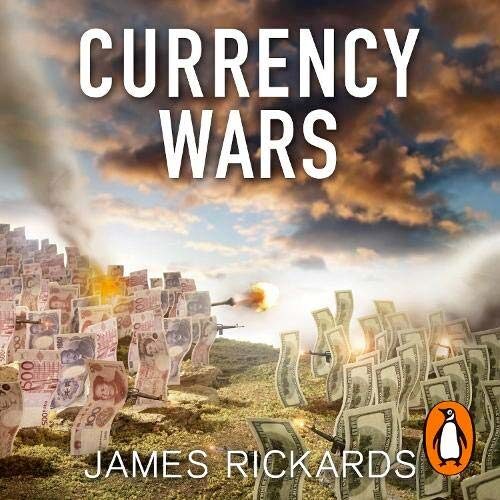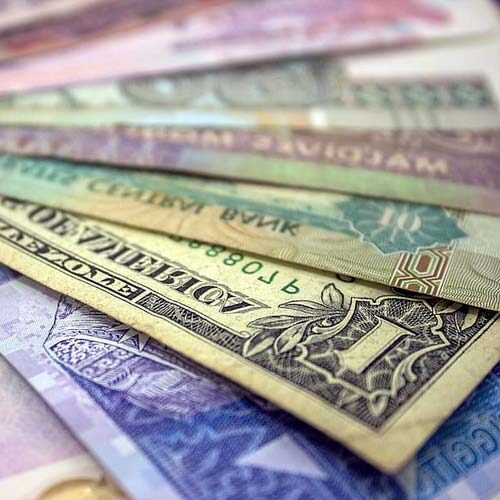


Overview
In 1971, President Nixon imposed national price controls and took the United States off the gold standard, an extreme measure intended to end an ongoing currency war that had destroyed faith in the U.S. dollar. Today we are engaged in a new currency war, and this time the consequences will be far worse than those that confronted Nixon.
Currency wars are one of the most destructive and feared outcomes in international economics. At best, they offer the sorry spectacle of countries’ stealing growth from their trading partners. At worst, they degenerate into sequential bouts of inflation, recession, retaliation, and sometimes actual violence. Left unchecked, the next currency war could lead to a crisis worse than the panic of 2008.
Currency wars have happened before-twice in the last century alone-and they always end badly. Time and again, paper currencies have collapsed, assets have been frozen, gold has been confiscated, and capital controls have been imposed. And the next crash is overdue. Recent headlines about the debasement of the dollar, bailouts in Greece and Ireland, and Chinese currency manipulation are all indicators of the growing conflict.
As James Rickards argues in Currency Wars, this is more than just a concern for economists and investors. The United States is facing serious threats to its national security, from clandestine gold purchases by China to the hidden agendas of sovereign wealth funds. Greater than any single threat is the very real danger of the collapse of the dollar itself.
Baffling to many observers is the rank failure of economists to foresee or prevent the economic catastrophes of recent years. Not only have their theories failed to prevent calamity, they are making the currency wars worse. The U. S. Federal Reserve has engaged in the greatest gamble in the history of finance, a sustained effort to stimulate the economy by printing money on a trillion-dollar scale. Its solutions present hidden new dangers while resolving none of the current dilemmas.
While the outcome of the new currency war is not yet certain, some version of the worst-case scenario is almost inevitable if U.S. and world economic leaders fail to learn from the mistakes of their predecessors. Rickards untangles the web of failed paradigms, wishful thinking, and arrogance driving current public policy and points the way toward a more informed and effective course of action.
Why We Like It
About Jim Rickards
James Rickards is a counselor, investment banker, and risk manager with over thirty years’ experience in capital markets. He advises the Department of Defense, the U.S. intelligence community, and major hedge funds on global finance, and served as a facilitator of the first ever financial war games conducted by the Pentagon. A frequent guest on CNBC, CNN, Fox, C-SPAN, Bloomberg TV, and NPR, Rickards also lectures at Northwestern University and at the School of Advanced International Studies.
Reviews
“One of the most urgent books of the fall.”—Mike Allen, Politico “Let’s hope he’s wrong.”—Financial Times
“Rickards . . . has written one of the scariest books I’ve read this year. Though I was tempted at first to dismiss him as alarmist, his intelligent reasoning soon convinced me that we have more to fear than fear itself. Part history, part primer and analysis, the text covers topics ranging from the “misuse of economics” to complexity theory. The pieces, although disparate, fit together snugly, as in one of those mystery jigsaw puzzles that come with clues in lieu of cover art. The picture that emerges is dark yet comprehensive and satisfying.”—Bloomberg Businessweek
“Unsettling . . . fascinating . . . a thorough analysis of how nations have manipulated their currencies . . . with disastrous consequences.”—Fort Worth Star-Telegram
“Buy Currency Wars if you want to learn the history and language of the global currency markets and the political economy which they support.”—Chris Whalen, Ritholtz.com
“Jim Rickards highlights dangerous dynamics between national security and the international financial markets. What we assumed was firm ground under our feet is more like the narrowing point of a precipice. Our politicians, national security experts, and financial markets, each chasing carrots dangling in front of them, fail to see that they are leading America right off the edge.”—Charles A. Duelfer, former special adviser to the director of the CIA; author of Hide and Seek: The Search for Truth in Iraq
Interested in one-one coaching?
Interested in one-one coaching?
Author
Jim Rickards
Tags
Browse Resources
Author
Jim Rickards
Tags
Overview
In 1971, President Nixon imposed national price controls and took the United States off the gold standard, an extreme measure intended to end an ongoing currency war that had destroyed faith in the U.S. dollar. Today we are engaged in a new currency war, and this time the consequences will be far worse than those that confronted Nixon.
Currency wars are one of the most destructive and feared outcomes in international economics. At best, they offer the sorry spectacle of countries’ stealing growth from their trading partners. At worst, they degenerate into sequential bouts of inflation, recession, retaliation, and sometimes actual violence. Left unchecked, the next currency war could lead to a crisis worse than the panic of 2008.
Currency wars have happened before-twice in the last century alone-and they always end badly. Time and again, paper currencies have collapsed, assets have been frozen, gold has been confiscated, and capital controls have been imposed. And the next crash is overdue. Recent headlines about the debasement of the dollar, bailouts in Greece and Ireland, and Chinese currency manipulation are all indicators of the growing conflict.
As James Rickards argues in Currency Wars, this is more than just a concern for economists and investors. The United States is facing serious threats to its national security, from clandestine gold purchases by China to the hidden agendas of sovereign wealth funds. Greater than any single threat is the very real danger of the collapse of the dollar itself.
Baffling to many observers is the rank failure of economists to foresee or prevent the economic catastrophes of recent years. Not only have their theories failed to prevent calamity, they are making the currency wars worse. The U. S. Federal Reserve has engaged in the greatest gamble in the history of finance, a sustained effort to stimulate the economy by printing money on a trillion-dollar scale. Its solutions present hidden new dangers while resolving none of the current dilemmas.
While the outcome of the new currency war is not yet certain, some version of the worst-case scenario is almost inevitable if U.S. and world economic leaders fail to learn from the mistakes of their predecessors. Rickards untangles the web of failed paradigms, wishful thinking, and arrogance driving current public policy and points the way toward a more informed and effective course of action.
Why We Like It
About Jim Rickards
James Rickards is a counselor, investment banker, and risk manager with over thirty years’ experience in capital markets. He advises the Department of Defense, the U.S. intelligence community, and major hedge funds on global finance, and served as a facilitator of the first ever financial war games conducted by the Pentagon. A frequent guest on CNBC, CNN, Fox, C-SPAN, Bloomberg TV, and NPR, Rickards also lectures at Northwestern University and at the School of Advanced International Studies.
Reviews
“One of the most urgent books of the fall.”—Mike Allen, Politico “Let’s hope he’s wrong.”—Financial Times
“Rickards . . . has written one of the scariest books I’ve read this year. Though I was tempted at first to dismiss him as alarmist, his intelligent reasoning soon convinced me that we have more to fear than fear itself. Part history, part primer and analysis, the text covers topics ranging from the “misuse of economics” to complexity theory. The pieces, although disparate, fit together snugly, as in one of those mystery jigsaw puzzles that come with clues in lieu of cover art. The picture that emerges is dark yet comprehensive and satisfying.”—Bloomberg Businessweek
“Unsettling . . . fascinating . . . a thorough analysis of how nations have manipulated their currencies . . . with disastrous consequences.”—Fort Worth Star-Telegram
“Buy Currency Wars if you want to learn the history and language of the global currency markets and the political economy which they support.”—Chris Whalen, Ritholtz.com
“Jim Rickards highlights dangerous dynamics between national security and the international financial markets. What we assumed was firm ground under our feet is more like the narrowing point of a precipice. Our politicians, national security experts, and financial markets, each chasing carrots dangling in front of them, fail to see that they are leading America right off the edge.”—Charles A. Duelfer, former special adviser to the director of the CIA; author of Hide and Seek: The Search for Truth in Iraq





